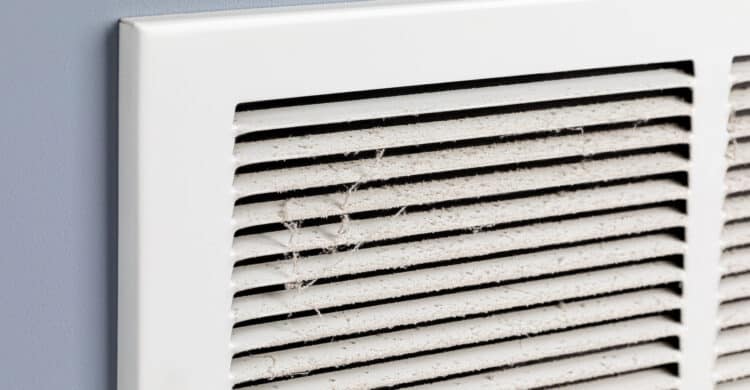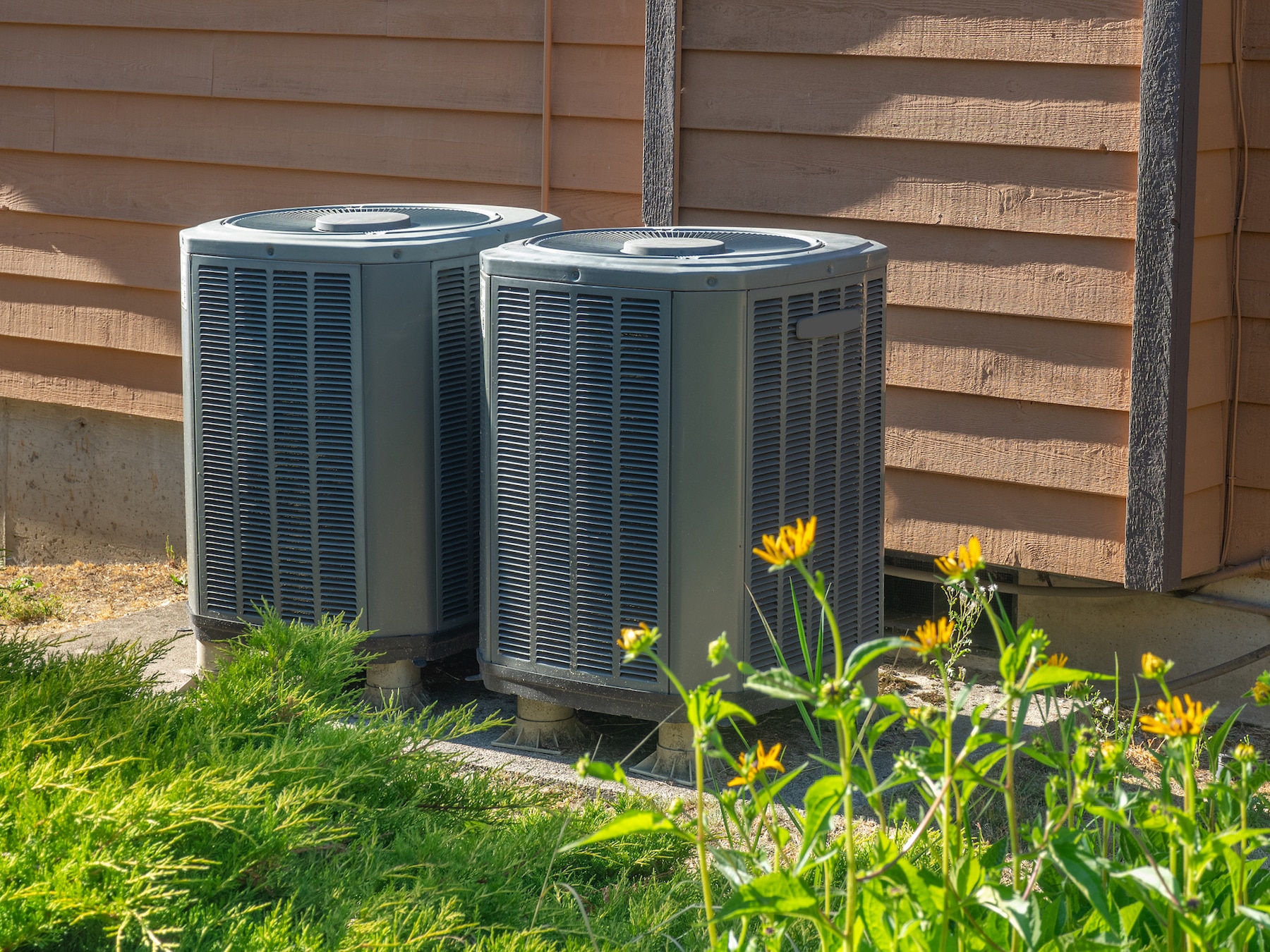
Preparing Your HVAC System for Allergy Season
In simple terms, your safe space might not be so safe after all.
But don’t worry. Understanding this situation can help you improve your indoor air, both practically and in terms of comfort.
Understanding the Connection Between Allergies and Air Conditioning
Understanding the link between allergies and air conditioning is crucial for maintaining a comfortable and healthy indoor environment. Surprisingly, your AC can play a role in spreading allergens like pollen and dust mites throughout your home, potentially worsening allergy symptoms for sensitive individuals.
The Role of AC in Spreading Allergens
As mentioned earlier, there are several factors contributing to air conditioner allergies, with pollen ranking among the most common triggers. This issue is particularly prevalent in urban areas with abundant flora, where trees and flowers release pollen, especially during the spring season. Pollen not only affects allergy sufferers but can also trigger asthma symptoms in susceptible individuals.
Even with doors and windows closed, pollen can find its way indoors, hitching a ride on clothing and infiltrating our living spaces. Once inside, it can combine with indoor dust, pet dander, and other allergens, exacerbating the problem as it gets circulated by your AC system.
Symptoms of AC-Related Indoor Air Allergies
When your air conditioner becomes a source of allergens, the symptoms experienced are often akin to those encountered in other environments. If you’re allergic to common household irritants like pet dander, dust, or pollen, their presence circulating within your home’s air can provoke familiar discomforts.
These may include persistent sneezing fits, uncontrollable coughing spells, bothersome sniffles, nasal congestion that feels perpetual, and an irritating sensation in the throat that just won’t abate. These symptoms can range from mildly bothersome to significantly disruptive, impacting your daily activities and overall well-being.
The Impact of HVAC Systems on Indoor Air Quality During Allergy Season
During allergy season, the role of HVAC systems in indoor air quality becomes particularly pronounced. HVAC systems can significantly influence allergies by either exacerbating or alleviating symptoms depending on their efficiency and maintenance.
While these systems are designed to regulate temperature and circulate air, they can also inadvertently distribute allergens such as pollen, dust mites, and pet dander throughout the indoor environment. Improperly maintained HVAC systems may accumulate these allergens within their ductwork or filters, subsequently releasing them back into the air.
How HVAC Systems Can Affect Allergies
The influence of HVAC systems on allergies is significant. Air conditioners play a crucial role in filtering indoor air and regulating humidity levels, both of which are essential factors in managing allergies.
With approximately 50 million seasonal allergy sufferers in America, the impact of HVAC systems cannot be overstated. Effective maintenance of your HVAC system is the determining factor in whether it aids in alleviating allergies or exacerbates them.
Reducing Allergens and Pollutants
As you gear up for allergy season, it’s essential to take proactive steps to prepare your HVAC system for the onslaught of allergens that can infiltrate your home. One of the first lines of defense is selecting the appropriate air filters. However, it’s not just about the filters themselves; ensuring that your air ducts are clean is equally vital.
Importance of Regularly Replacing Your Air Filter
Regularly replacing your air filter is crucial for reducing allergies in your AC system and maintaining good indoor air quality. Indoor air can be more polluted than outdoor air, and your HVAC system plays a vital role in addressing this issue. Choosing filters with a high Minimum Efficiency Reporting Value (MERV) rating is important, as they are more adept at capturing smaller particles.
Consider specialized filters like HEPA (High-Efficiency Particulate Air) filters for even greater allergen removal. However, it’s essential to remember that even the highest-quality filters lose effectiveness over time due to debris buildup. Therefore, consistent replacement of your air filters is necessary to ensure optimal performance and uphold a healthy indoor environment.
Cleaning Air Ducts
Cleaning out air ducts can be instrumental in reducing allergens and improving indoor air quality. Over time, air ducts can accumulate dust, pollen, pet dander, and other allergens, which are then circulated throughout your home by your HVAC system vents.
These contaminants can exacerbate allergy symptoms and contribute to respiratory issues. By regularly cleaning out air ducts, you can remove these accumulated allergens, preventing them from being recirculated into your living spaces. This contributes to fostering a healthier indoor environment, offering seasonal allergy relief for sufferers and promoting overall well-being.
Air Purification Systems
Air purification systems play a vital role in providing relief from allergens during allergy season. These systems are designed to effectively capture and remove airborne particles, including pollen, dust mites, pet dander, mold spores, and other allergens, from indoor air. By continuously filtering the air, air purification systems help to maintain a cleaner and healthier indoor environment, reducing the concentration of allergens that can trigger allergy symptoms. For allergy sufferers, investing in an air purification system can significantly alleviate discomfort and improve overall respiratory health during allergy season.
By combining proper filter selection with regular air duct cleaning and an air purification system, you can significantly enhance the effectiveness of your HVAC system in removing allergens from the air. Together, these proactive measures minimize allergy symptoms and contribute to a cleaner and healthier living environment for you and your family.
Conclusion
Understanding the interplay between allergies and air conditioning is crucial for maintaining a healthy indoor environment, particularly during allergy season. While air conditioning systems offer relief from outdoor allergens, they can inadvertently spread irritants like pollen and dust mites throughout your home. This can lead to familiar symptoms such as sneezing, coughing, and nasal congestion. However, there’s no need to despair.
Regular maintenance and servicing of your HVAC system is essential to ensure its continued effectiveness in preventing allergies. This includes routine inspections, filter replacements, and cleaning of ductwork to remove any accumulated dust and debris. By investing in professional maintenance services for your system, you can ensure that it operates efficiently and effectively in reducing allergens and promoting a healthier indoor environment for you and your family.
And remember, Conditioned Air Systems can help prevent allergies by ensuring your HVAC system is operating at its best, providing relief for allergy sufferers and promoting overall well-being.
Breathe Easier

